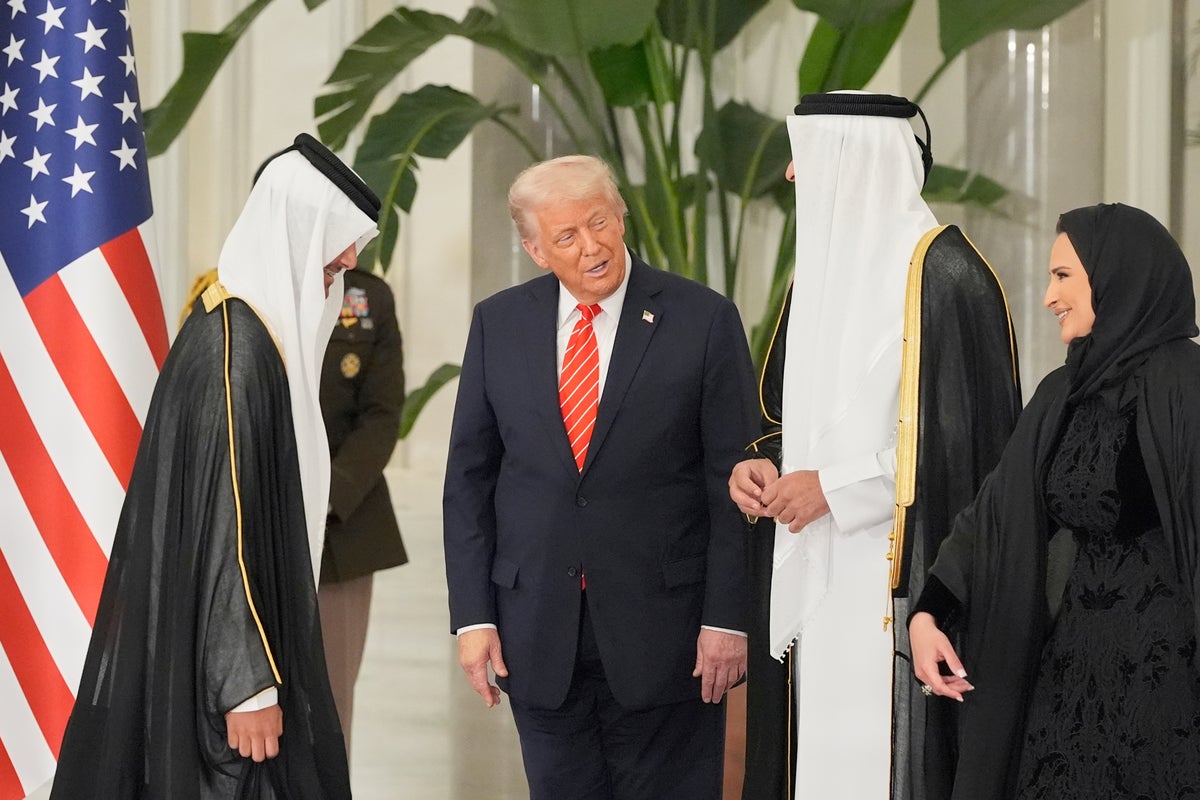Trump’s Recent Activities in Qatar: Business, Diplomacy, and Controversies
Changing Engines on His Luxury Jet
During a recent business summit in Doha, Donald Trump made headlines not only for his political remarks but also for a light-hearted comment about his personal luxury jet. After the U.S. and Qatar finalized a significant $200 billion deal for Boeing aircraft, Trump joked about potentially changing the engines of his private plane. "General Electric makes the best large aeroplane engine in the world," he quipped, prompting laughter from attendees. This comment illustrates Trump’s penchant for mixing personal anecdotes with public events, drawing attention to both his business interests and the significance of the Boeing deal.
The Boeing Deal and Economic Impact
The agreement reached in Qatar involves the purchase of approximately 160 aircraft from Boeing, marking one of the largest orders in the company’s history. Trump’s praise for U.S. business leaders was evident as he acknowledged their vital role in brokering such substantial deals, emphasizing the economic benefits that would arise from this transaction. The deal is viewed as a significant boost for the American aerospace industry, reinforcing Trump’s focus on domestic manufacturing and job creation.
Promising "Zero Tariff" Trade Relations with India
At the summit, Trump also claimed that India had offered the United States a "basically zero tariff" trade deal. This statement is particularly noteworthy given that earlier in April, he had announced reciprocal tariffs on various nations, including India. With such varying elements in play, Trump’s assertion could signal a potential easing of trade tensions in the future. However, the feasibility of such a deal remains uncertain, especially considering the history of high tariffs that have previously characterized U.S.-India trade relations.
Iran Negotiations for Long-term Peace
Trump’s diplomatic engagements in the Middle East included claims of "very serious" negotiations with Iran concerning a long-term peace agreement. He mentioned that Iran had shown signs of agreeing to terms conducive to a nuclear deal, a statement that highlights the delicate and often contentious nature of U.S.-Iran relations. Trump’s approach conveys a willingness to explore diplomatic channels in resolving longstanding conflicts, though skepticism about the outcome persists among observers.
The Situation in Syria
In a surprising move, Trump announced the lifting of long-standing sanctions against Syria, suggesting that the U.S. should give the nation "a chance" to stabilize and reform. This statement aligns with Trump’s broader foreign policy approach, which often emphasizes engaging with leaders whom he perceives as strong figures. His praise for Syrian leader Ahmad al-Sharaa, a former al-Qaeda fighter, raises eyebrows, reflecting the complexities of transforming adversarial relationships into cooperative ones.
Warning About Potential Violence with Iran
Despite his diplomatic overtures, Trump issued a stern warning that the U.S. may have to reconsider its approach with Iran, stating that a "violent course" could become necessary if negotiations fail. His commitment to avoiding military conflict while addressing the nuclear threat underscores the fine line he is attempting to walk between diplomacy and defense. The high stakes involved in these discussions amplify the urgency with which Trump is handling U.S. foreign policy in a volatile region.
Engaging with Business Leaders
Throughout the summit, Trump praised the business executives present, referencing their significant contributions to securing crucial agreements that bolster America’s economic position on the global stage. This emphasis on collaboration between government and business is reflective of Trump’s overarching strategy of intertwining economic growth with national interests.
Upcoming Military Engagements
As part of his tour, Trump is scheduled to visit Al-Udeid Air Base, a critical location for U.S. military operations in the Gulf. During his visit, he will address the troops stationed there, reinforcing commitments to U.S. military readiness and support. This engagement serves to solidify Trump’s image as a leader attentive to the welfare of both service members and international diplomatic affairs.
Conclusion: A Multifaceted Diplomatic Approach
The developments from Trump’s visit to Qatar highlight the multifaceted nature of modern diplomacy, where business interests, trade negotiations, and military engagements converge. From discussions about luxury jets to trade agreements with India and Iran, Trump’s activities reflect a blend of personal ambition and political maneuvering that garners as much attention as the outcomes of the deals themselves. As the world observes, the unfolding events continue to shape both his legacy and the geopolitical landscape.


